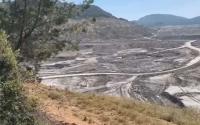Earth Warming at Faster Pace, Say Top Science Group's Leaders
Common Dreams/ Published on Thursday, December 18, 2003 by the San Francisco ChronicleDavid Perlman
Leaders of one of the nation's top scientific organizations issued a new warning this week that human activities -- most notably the greenhouse gas emissions from power plants and other industries -- are warming Earth's climate at a faster rate than ever.
The statement came from the 28-member council of the American Geophysical Union, whose 41,000 members include more than 10,000 experts on the planet's atmosphere and changing climate.
Although the vast majority of climate researchers are persuaded that the evidence, combined with computer models, show that global warming is real and dangerous, a few scientists still hold to the view that most of the changes are due more to natural cycles than human-induced causes.
Lead scientist of the organization that circulated the statement is Robert Dickinson, professor of atmospheric sciences at the Georgia Institute of Technology. Another significant signer was John Christy, director of the University of Alabama's Earth Systems Science Center, a more cautious supporter of the idea that humans are causing climate change.
In a phone interview, Christy said that while he supports the AGU declaration, and is convinced that human activities are the major cause of the global warming that has been measured, he is "still a strong critic of scientists who make catastrophic predictions of huge increases in global temperatures and tremendous rises in sea levels."
"It is scientifically inconceivable that after changing forests into cities, turning millions of acres into farmland, putting massive quantities of soot and dust into the atmosphere and sending quantities of greenhouse gases into the air, that the natural course of climate change hasn't been increased in the past century.''
The AGU has issued milder statements on global change in the past, with more emphasis on theories about natural changes than on evidence of human- caused rapid warming. But this statement declared: "Scientific evidence strongly indicates that natural influences cannot explain the rapid increase in global near-surface temperatures observed in the second half of the 20th century."
Although they cannot yet predict the pace of change, the scientists did declare that since 1900 more than 80 percent of the atmosphere's heat-trapping carbon dioxide -- the major greenhouse gas -- has been caused by fossil fuel burning and changes in land use. They also said that levels of the gas "may be rising faster than at any time in Earth's history, except possibly following rare events like impacts from extraterrestrial objects."
Without specifying numbers, the scientists did make these predictions: "Mid-continent warming will be greater than over the oceans, and there will be greater warming at higher latitudes. Some polar and glacial ice will melt, and the oceans will warm; both effects will contribute to higher sea levels. There will be considerable regional variations in the resulting impacts.
"The unprecedented increases in greenhouse gas concentrations, together with other human influences on climate over the past century and those anticipated for the future, constitute a real basis for concern."
In a related development, researchers at the Woods Hole Oceanographic Institute in Massachusetts are reporting that the tropical Atlantic Ocean is much saltier than it was 50 years ago, according to the Boston Globe.
Scientists have assumed that global warming would speed evaporation in parts of the world's oceans but had no direct way of measuring the change. In the Woods Hole study, published in the journal Nature, scientists estimated that tropical evaporation rates increased 10 percent during the last 15 years.
As a purely scientific organization, the AGU took no stand on the politics of the international Kyoto Protocol limiting greenhouse gas emissions, which President Bush has refused to sign.
But the AGU did suggest that continuing scientific research "provides a basis for mitigating the harmful effects of global climate change through decreased human influences." Among the AGU's suggestions: slowing greenhouse gas emissions, improving land management practices and removing carbon from the atmosphere.






